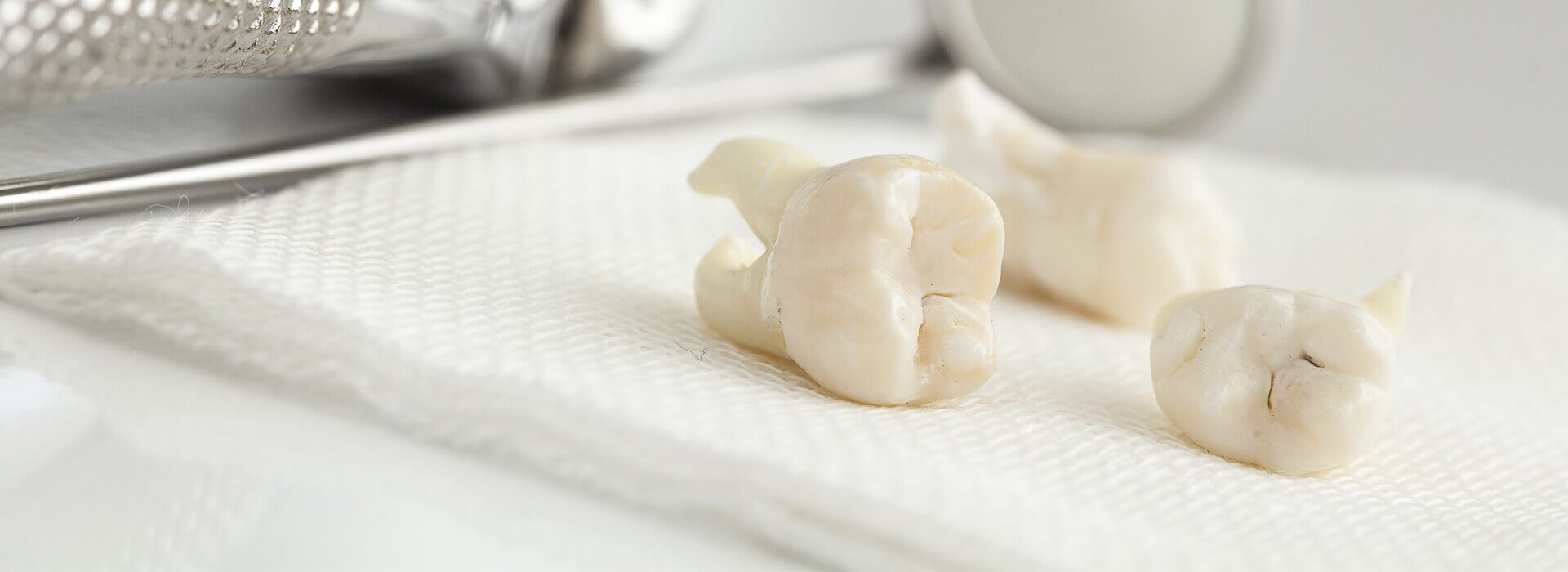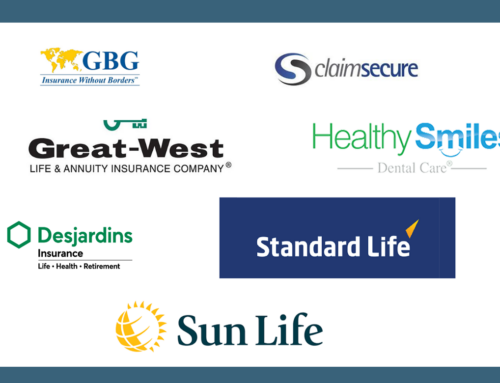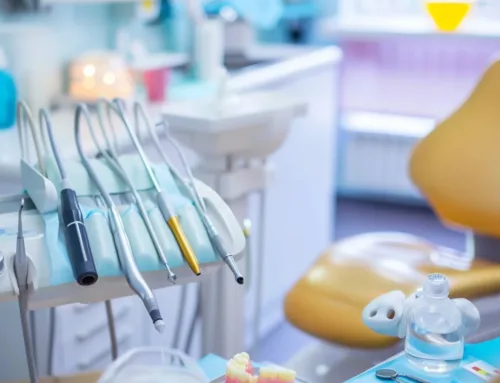How To Know If Wisdom Teeth Really Need To Be Removed
Do you still have your wisdom teeth, did you have them removed and still have the emotional scars to prove it or are you one of the lucky few people (approximately 35% according to a dental health study) who have never had any to worry about? There has been some debate, of late, regarding the need to remove these teeth and when it is recommended or not.
Wisdom teeth, also known as third molars, typically emerge and potentially become an issue for people between the ages of 17 and 21. Some people (between five and 35% according to a dental research study), only have between one and four. The rest of us typically have all four, which may or may not emerge or be of any concern. You may not even realize you have these extra teeth without an x-ray, as they can sometimes remain hidden and impacted below your gums in behind your second molars.
In the past, it was quite common for dentists to quickly remove wisdom teeth as soon as they appeared or produced any degree of pain. Being large teeth and arriving so late in life, there can be some irritation to the gums when they first break through. The common thinking was there is simply not enough room in an average person’s mouth for four extra molars; 28 teeth are plenty. These extra four could potentially cause crowding and lead to issues for the other teeth. However, wisdom tooth extraction, particularly for those which are impacted, can be an involved and sometimes traumatic experience requiring patients to be put under anaesthesia followed by several days of recovery. I’m sure we’ve all heard at least one negative story from a friend or family who spent a week on their couch popping pain relievers and looking like a battered chipmunk. But it is a relatively common procedure, which should not really be a cause for concern or undue anxiety if the surgery is warranted. Modern sedation dentistry is performed regularly with the comfort of the patient as the top priority.
So, how do we determine if removing one or all of your wisdom teeth is necessary or not? There are several factors to consider with your local dentist when deciding whether or not wisdom teeth need to be extracted including:
— status and health of your second molars
— gum health or disease
— position of the mandibular nerve relative to the wisdom teeth
— level of irritation or pain and its management
— your age
— tooth crowding
— cost
Status and Health of Your Second Molars
A primary concern with wisdom teeth is the impact they have on your second molars. Your extra molars can grow and emerge in all sorts of different directions. In the best-case scenario, they simply grow straight up, just like the rest of your teeth and have little to no bearing on the rest. But they can also grow at different angles, including sideways and directly towards your second molars. There is a ligament surrounding your second molars which can be negatively impacted by your third molars over time. Further, if your wisdom teeth and second molars are too close together it may cause tooth decay in one, which effectively spills over into the other.
X-rays or more detailed 3D scans, like CAT scans for your mouth, can be used to confirm which way your wisdom teeth are growing and whether or not their continued growth will have any detrimental effect on your next closest or other teeth. If this is the case and depending on your age, it will likely make sense to remove the offending wisdom teeth before the cause any permanent damage.
Gum Health or Disease
Your local dentist will be able to perform an exam to quickly measure and determine if you have, or are developing, any significant gum inflammation or disease around your second molars or impacted wisdom teeth. This can occur from time-to-time and is difficult to correct through brushing or cleaning as the teeth are so far back in your mouth.
This inflammation, if left uncorrected, can cause other health issues and has even been shown to have a particularly negative effect on women who are pregnant. Women, in particular, obviously want to have this checked well in advance of becoming pregnant to avoid any additional stress.
These types of gum issues can often be dealt with through the removal of your extra molars followed by ongoing proactive oral care.
Position of the Mandibular Nerve Relative to Your Wisdom Teeth
An x-ray or 3d scan will likewise reveal the position of the mandibular nerve, which runs along your jaw line and can be relatively close to the roots of your wisdom teeth depending on how long and in which direction they are growing. If the nerve is too close to the roots, removing the teeth will incur the risk of interacting with and/or damaging this nerve, which can result in prolonged numbness in your chin or bottom lip. You naturally want to discuss and avoid as much risk as possible when considering any type of surgery.
Level of Irritation or Pain and Its Management
Everyone has a different threshold for pain and constant tooth pain, with its close proximity to your brain, can be among the most frustrating and debilitating, even with today’s pain relief medications. For some, the choice to remove wisdom teeth and endure some short-term discomfort vs. ongoing pressure and pain caused by one or more wisdom teeth is an easy one to make. Of course, you will still want to consult with your dentist and perhaps even your personal physician to understand all of the pros and cons going under anaesthetic for dental surgery based on your age and overall health status.
Your Age
Part of the reason many dentists recommend and opt for removing wisdom teeth when patients are in the late teenage years is because the roots of these third molars will not yet have been fully formed or secured within the gums. Simply put, the earlier you have wisdom teeth removed, the less intrusive the surgery needs to be. This, in turn, generally means a quicker, less painful post-operative recovery period and less chance of complications like pockets in your gums or mandibular nerve damage.
As noted, you and your local dentist will also need to discuss any other oral or general health related issues, which are more likely to appear the older you get. You will no doubt be asked, but be sure to disclose any underlying conditions or medications you may be taking, which may also impact a decision on how to best and most safely proceed.
Tooth Crowding
While tooth crowding was at one time the primary reason for wisdom tooth extraction, it has since been found there is little to no evidence of normally appearing third molars causing any sort of issue in most people. This being said, every case is unique and you will want to discuss with your dentist if there is anything specific in your jaw, mouth or other teeth which is a cause for concern from this perspective. Again, a thorough examination, x-rays and/or 3D scan, if necessary, will help determine an appropriate course of action.
Cost
Cost should not be a determining factor in whether or not wisdom teeth should be removed or any aspect of your oral health for that matter, as we’ve noted dental issues can have a detrimental effect on your overall health and wellness. However, having all four of your third molars removed at the same time can be somewhat expensive and worth a discussion with your dentist to understand the necessity of each. There are often dental procedure payment or financing options available for patients who require time or assistance to cover costs.
Make Wise Choices About Your Teeth
There are clear benefits and risks to performing any major dental or medical procedure relative to each individual patient’s age, oral health and general health status. Be sure to consult with your dentist or a dental surgeon about all of the factors relative to your or your children’s specific situation before committing to any extractions. Deciding to have wisdom teeth removed, if necessary, is much better done early, before those third molars have had a chance to grow and interact with other teeth or nerves.
Still have questions about your wisdom teeth, other aspects of oral health or need to book an appointment with a dentist? Contact the caring team at Georgian Dental and we’ll be happy to provide whatever additional information you need to help make a wise choice.
Appointment Request
If you’re interested in any of our procedures, and would like to meet with one of our dentists to discuss options, costs and get additional information, complete this short form and we’ll give you a call to arrange for a no-obligation appointment at our Barrie clinic.










